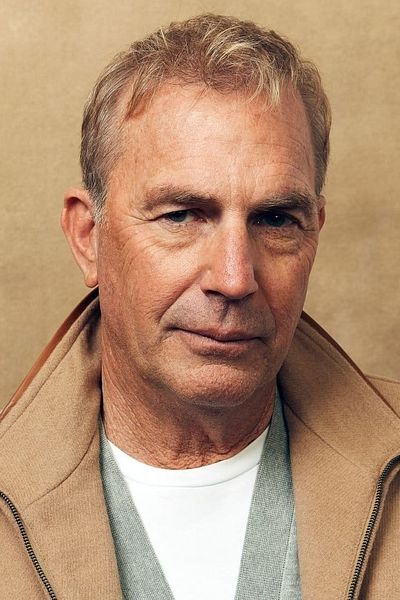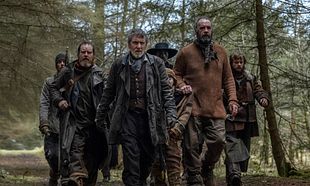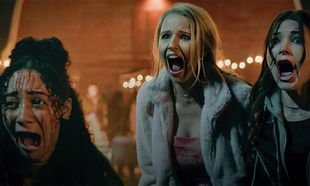Set during the years before the American Civil War, settlers from the east led by a hardened soldier (Luke Wilson) arrive in Horizon near the San Pedro Valley to build a new life. Their story intersects with the survivors (Sienna Miller, Isabelle Fuhrman) of a Native American attack on Horizon, the soldiers who repelled it (Michael Rooker, Sam Worthington), a horse trader (Kevin Costner), and a woman on the run (Jena Malone) from a violent crime family (Jamie Campbell Bower, Dale Dickey, Jon Beavers)...
As much as the idea of serialised storytelling has been in place for cinema since its dawn, television has effectively taken this over. Even with the idea of cinematic universes, there's still the idea that chapters are built with clear indicators for further chapters, or they're fashioned to make them accessible to all audiences by sanding down some of the edges. 'Horizon: An American Saga' is Kevin Costner's long-gestating passion project, begun in 1988 but now being fashioned in an era when it probably would have worked best as a TV series than a movie series.
For one, the first chapter introduces a massive swathe of characters, some of them in media res, and leaves many of their stories and development left truncated for another chapter and front-loads their story in a clunky and mismanaged way. It also doesn't help that there's little in the way of cohesive thinking in how it switches from story to story, even if adversity and survival is the common theme. Sienna Miller's blonde-haired, blue-eyed settler survivor stands in stark contrast to Jena Malone's ragged, hard-scrabble story of life on the run from violent criminals. Luke Wilson's down-home cowboy tries to dole out lessons of survival and humility to Ella Hunt's ludicrously English damsel while Kevin Costner meanders into the middle of it all as a louche horse trader.
Undoubtedly, Costner knows how to frame and shoot the landscape in such a way that captures the vast beauty of it all. When you go back and look at the likes of 'Dances With Wolves' or 'Open Range', it's clear that he's a capable director in the right context and is able to stir up that sense of awe and splendour. Yet, for all of this, 'Horizon: An American Saga' has little to go on without any of the other chapters to give itself a reason to exist. When compared to something like 'Dune: Part One', it has a much further way to go in building the world and the characters yet doesn't feel half as cumbersome. It also doesn't help matters that probably the most interesting scene in the movie - a tense, dialogue-heavy duel walking through a working town - features the movie's writer, director, producer and star.
'Horizon: An American Saga' is less a vanity project for Costner than it is a statement of intent, deliberately throwback and with little in the way of modern sensibility or self-awareness. If there's a comparison to be made, undoubtedly 'How The West Was Won' is its clearest descendant, yet that wasn't even as long-winded as this. Westerns, as a genre, have been reinvented many times over, and some of the most successful examples are the ones that drive straight at the inconsistencies of it. Luke Wilson's character, in particular, seems to rail against the selfishness of the two urban dilettantes like it's coming from Costner's own voice. Early on, the Native Americans who engage in a brutal and savage assault on the titular location that is then admonished by the wise elder, who is resigned to the fact that the wagons will keep coming no matter what and there is little to stop them as it's a part of human nature, also observed by Danny Huston's military officer character. For a genre that is so storied, that has such history and such room for comment and conjecture, 'Horizon: An American Saga' feels especially dull.
At a whopping three hours with the second chapter due in August, and a third in production and a fourth on the way, 'Horizon: An American Saga' feels like episodes of a TV show grafted together, and one that probably wouldn't make it past a first season. Though it may have ambition and scale, it lacks clarity and is far too clunky to ever break into a stride.



















































































